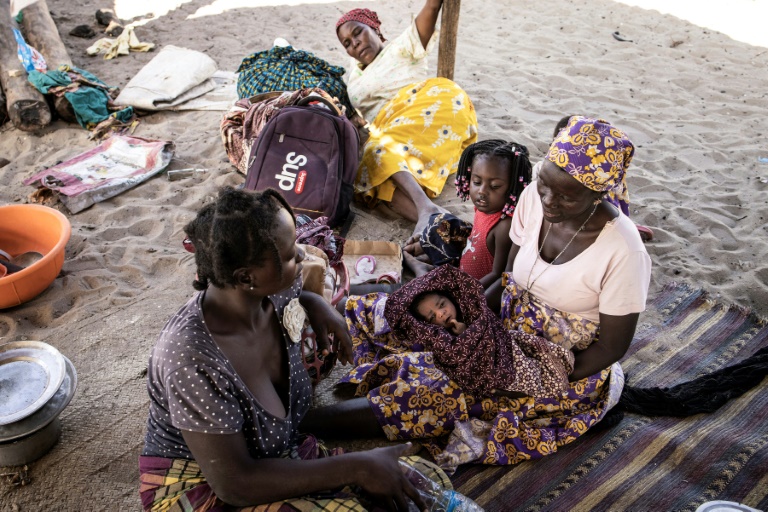Mozambique should combine its military response to a spiralling jihadist insurgency with aid to disenchanted communities and dialogue with militants to offer them an exit from violence, the International Crisis Group (ICG) said Friday.
The Brussels-based think tank urged Maputo to “use force wisely” in tackling the brutal campaign unfolding in its gas-rich north.
The authorities should accept outside offers of military assistance but focus on containing the insurgency and protecting displaced civilians, it said in a report.
“There needs to be an appropriate level of military support to pressure this group… to consider surrendering, but also to offer them a pathway out,” its main author, Dino Mahtani, told AFP.
Mozambique would need to resolve “the set of local factors that have spurred… militants into battle” in order to stem the violence, the report stressed.
Islamic State-linked jihadists known locally as Al-Shabab have been terrorising impoverished Cabo Delgado province since 2017, ransacking villages and towns.
The conflict has claimed more than 2,800 lives, half of them civilians.
In March, fighters launched an assault on the town of Palma, overwhelming security forces and causing French energy giant Total to suspend work on a nearby gas project.
The United Nations’ refugee agency on Friday said some 70,000 people had fled Palma since the attack, bringing the total number of displaced up to nearly 800,000.
Thousands are reportedly stranded “in very insecure areas around Palma with restricted humanitarian access,” the UNHCR said.
“Many others” have attempted to cross into neighbouring Tanzania, it said.
The raid, which killed dozens, is considered one of the worst acts of Islamist militancy in southern Africa.
The ICG urged the government to use donor money to fund development that could “soothe local tensions” and provide alternative livelihoods for the poor and jobless who are being wooed by the jihadists.
Bordering Tanzania and more than 1,500 kilometres (930 miles) from the capital Maputo, Cabo Delgado is a “crucible” of socio-economic factors that stoked the insurgency, Mahtani said.
Frustration there grew when local communities felt excluded from the discovery of vast deposits of natural gas and rubies, he said.
Young men began to rebel against traditional religious leaders in the Muslim-majority province.
Jihadists fleeing a security crackdown in Tanzania then latched on to their movement, which was also stoked by ethnic divisions and enmeshed with drug trafficking.
– Dialogue –
Mahtani said aid would open a “keyhole” for urgently-needed dialogue with the jihadists and pave the way for discussions about a potential amnesty.
Mozambique’s government has so far focused most of its attention on a military response.
But its president, Filipe Nyusi, appears wary about accepting assistance from regional neighbours and Western countries.
ICG urged Nyusi to accept “measured” external intervention to support and train local troops, avoiding a “heavy deployment” of foreign boots.
“That could end up just being a lightning rod for international jihadists to come and fight an international intervention,” Mahtani warned.










